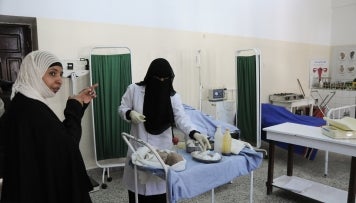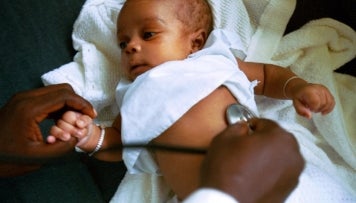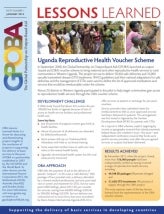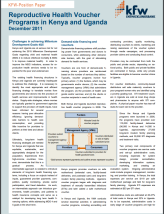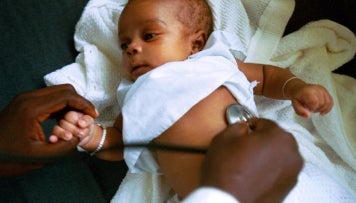
Photo: Ami Vitale / World Bank
The UN Sustainable Development Goals, looking to 2030, seek to continue the progress made in addressing maternal health, child mortality and disease prevention. Donors have more than doubled their contributions to global health aid since 2000, and major advancements in health technologies and medicines have increased as well. Today, 17,000 fewer children die each day than in 1990, (1) but five million still do not live beyond their fifth birthday every year -- with Sub-Saharan Africa accounting for 80 percent of these deaths. Though the number of women who die during childbirth has decreased by 37 percent since 2000, only half of women in developing countries still do not have access to adequate health care-- with the maternal mortality rate still 14 times higher compared to women in developed countries.
Yet significant obstacles remain—from supply-side constraints such as poor infrastructure and lack of resources to demand-side constraints, including inability to pay, lack of insurance coverage, or lack of access—preventing lifesaving resources from reaching the poor in developing countries who need them most.
Using innovative results-based financing schemes increasing access to affordable, quality health care services, GPRBA has supported reproductive health services in Uganda, Nigeria, Lesotho and Yemen:
- The Uganda Reproductive Health Voucher project implemented in the rural western part of the country, in which GPRBA partnered with KfW to fund a voucher scheme. This program involved users paying a low nominal fee for vouchers to be used for services such as pre– and post-natal care, childbirth attended by a trained medical professional, and screening and treatment of sexually transmitted diseases for couples.
- The Yemen Safe Motherhood Project also provided professional maternal health services in an urban context for pregnant women in the in Yemen was funded in an urban context in the poorest parts of Sanaa, Yemen’sthe capital city.
- GPRBA supported the Pre-Paid Health Scheme Pilot Project in Nigeria to increase access to quality basic health care in poorer parts of the country by implementing a health insurance scheme.
- Lesotho’s New Hospital Public-Private Partnership provides access to quality health services at the state-of-the-art facility Queen ‘Mamohato Hospital in Maseru, along with support to a new national hospital and filter clinics. under a public-private partnership model in Lesotho.
(1) United Nations
Related Source on RBF Health: Health Results Innovative Trust Fund (HRITF)



